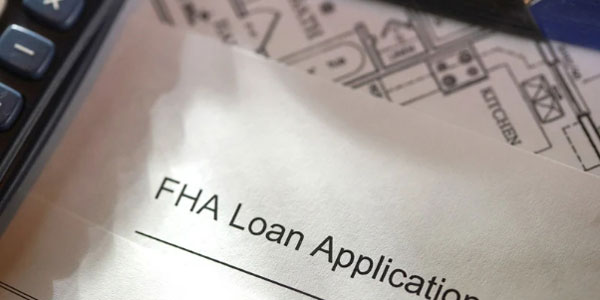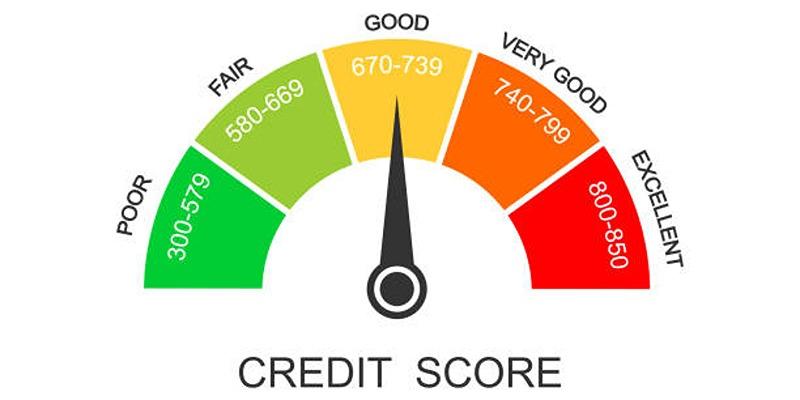10 Ways to Improve Your Credit Score After a Foreclosure
Mar 20, 2024 By Susan Kelly
Facing a foreclosure can be a challenging and emotionally taxing experience for individuals and families. Not only does it disrupt your housing situation, but it also carries significant implications for your financial well-being. The impact extends beyond the loss of a home to affect your credit score, potentially making it harder to secure future loans or favorable interest rates. While a foreclosure can indeed lower your credit score, it's important to remember that it doesn't define your entire financial journey. By taking proactive steps and seeking financial guidance, you can gradually rebuild your creditworthiness, paving the way for improved financial stability and opportunities in the future.
1.Understand the Impact

Before embarking on the journey to enhance your credit score, it is essential to delve into the intricate details of the circumstances that resulted in the foreclosure. Understanding the nuances of how the foreclosure transpired and comprehending its repercussions on your credit standing is paramount. Typically, a foreclosure lingers on your credit report for a span of seven years, casting a shadow that can markedly diminish your credit score during this period. By grasping the full extent of this impact, you are better equipped to formulate a strategic plan moving forward.
2. Check Your Credit Report
Begin by obtaining a copy of your credit report from all three major credit bureaus Equifax, Experian, and TransUnion. Take the time to review the reports meticulously to ensure that every detail is accurate. Pay special attention to any information regarding the foreclosure process. If you spot any errors or discrepancies, don't hesitate to dispute them if needed. Taking the necessary steps to correct inaccuracies can play a significant role in boosting your credit score and financial well-being in the long run.
3. Develop a Budget
Creating and diligently adhering to a budget is crucial when it comes to the financial recovery process post-foreclosure. Start by evaluating your monthly income and expenses to ascertain a realistic spending limit. It's important to give priority to essential costs like housing, utilities, and groceries. Additionally, allocate a specific portion of your earnings towards debt repayment and the gradual restoration of your credit score. This disciplined approach will not only help stabilize your finances but also pave the way for a more secure financial future.
4. Pay Your Bills on Time
Regularly paying your bills on schedule is vital for boosting your credit score. This demonstrates to lenders that you are dependable and capable of handling your finances prudently. To accomplish this, think about arranging automatic payments or setting reminders to assist you in staying organized. By making timely payments, you not only boost your credit score but also demonstrate financial discipline. Remember, even a single missed payment can significantly affect your creditworthiness, so staying organized and proactive with your finances is key to long-term financial health.
5. Reduce Your Debt
High levels of debt can significantly impact your credit score, leading to potential financial challenges. To improve your credit health, it's crucial to focus on promptly paying off any outstanding balances. Begin by tackling debts with the highest interest rates, like credit card debts, as they can accumulate quickly. Then, gradually address other debts to regain financial stability. Additionally, exploring options such as debt consolidation or negotiation can help streamline your repayment process and make it more sustainable in the long run.
6. Use Credit Responsibly
Although it's tempting to steer clear of credit post-foreclosure, showcasing responsible credit habits is vital for rebuilding your financial position. By gradually reintroducing credit into your financial portfolio and managing it wisely, you can show lenders your commitment to financial stability and potentially improve your credit score over time. This proactive approach can pave the way for future financial opportunities and help you establish a solid foundation for your financial future. One effective way is to consider applying for a secured credit card or a small personal loan.
7. Diversify Your Credit
Having a diverse mix of credit accounts can improve your credit score over time. In addition to credit cards, consider taking out an installment loan, such as a car loan or a student loan. Having a variety of credit types demonstrates to lenders that you can manage different types of debt responsibly. This variety also shows that you have experience with various financial products, which can strengthen your overall credit profile. By responsibly handling different credit accounts, you can showcase your financial maturity and ability to handle financial obligations effectively, further boosting your creditworthiness.
8. Keep Credit Utilization Low
Credit utilization, the proportion of your credit card balances to your overall credit limits, significantly impacts your credit score. It is recommended to maintain your credit utilization under 30%, as surpassing this threshold might indicate to creditors that you are relying too heavily on credit. To manage this effectively, consider paying off outstanding balances and refraining from reaching the maximum limit on your credit cards. By actively monitoring and controlling your credit utilization, you can positively impact your creditworthiness and financial health.
9. Be Patient
Rebuilding your credit after a foreclosure is a gradual process that requires patience and persistence. It's crucial to focus on incorporating positive financial habits into your routine and keeping a close eye on your progress. While the results may not be immediate, your dedication to showcasing responsible financial behavior will yield fruitful outcomes in the long run. Remember, every small step you take towards financial stability contributes to your overall success.
10. Seek Professional Help if Needed
If you're finding it challenging to enhance your credit score independently, it may be beneficial to explore support from a credit counseling agency or a financial advisor. These experienced professionals offer personalized guidance and assistance customized to your unique circumstances. They can work with you to create a practical roadmap for improving your credit health, setting achievable financial objectives, and ultimately paving the way for a more secure financial future.
Conclusion,
While facing a foreclosure can indeed affect your credit score, it's important to know that it doesn't mark the end of your financial journey. By meticulously adhering to the ten crucial steps outlined and staying dedicated to enhancing your financial well-being, you will embark on a journey to progressively reconstruct your credit score and restore your financial security. It's vital to bear in mind that patience and resilience are fundamental virtues in this process. With the passage of time and consistent efforts, you will be able to attain the credit score you aspire to achieve.

Federal Open Market Committee (FOMC)

Difference Between Mortgage Lenders vs. Banks

How Economic Volatility Affects Your Investment Portfolio

Gross Debt Service Ratio

Other benefits of CBDC that the central bank has taken into account

Top-Rated Funeral Coverage Providers

Making The Most Of Your HSA At Every Life Stage

Understanding Market Research - A Comprehensive Guide

How to Sell on Poshmark: A Complete Guide

Explain in Detail: What Is a Financial Planner?

Funding Home Improvements: Qualifying for an FHA Loan

